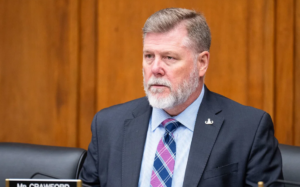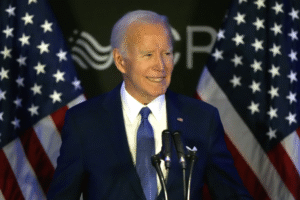The U.S. Senate has voted to advance a bill that would regulate stablecoins, a type of cryptocurrency tied to real-world assets like the U.S. dollar. Monday’s 66-32 procedural vote revives one of former President Donald Trump’s key legislative goals and highlights the growing influence of the crypto industry, which spent heavily during last year’s elections and is preparing for a major role in the upcoming midterms.
The legislation’s future had been uncertain, especially after Democrats blocked it earlier this month over concerns about Trump’s financial ties to the crypto space. However, several Democratic senators changed their stance following recent negotiations with Republicans.
To secure bipartisan support, Republican lawmakers agreed to stricter rules on foreign-based stablecoin issuers, enhanced enforcement measures, and a ban preventing major tech firms like Google and Meta from launching their own stablecoins. The Senate is expected to hold a final vote on the bill later this week, depending on how many amendments are proposed by both parties.
Even with the bill moving forward, divisions remain within the Democratic Party. Senator Elizabeth Warren of Massachusetts voiced strong opposition, arguing the legislation could allow Trump to profit from the crypto market without adequate oversight. She warned it could “supercharge” the stablecoin industry and effectively put Trump in charge of regulating his own financial products.
Although lawmakers added new ethics rules to the bill—such as prohibiting members of Congress from issuing stablecoins—Warren and other critics said those changes fell short. “This Congress should be a check on the president,” Warren emphasized.
The bill seeks to establish a federal framework for overseeing stablecoins, which have so far operated under a patchwork of state and federal rules. These digital assets are pegged to stable values—usually the U.S. dollar—making them more reliable for everyday transactions than other cryptocurrencies, which can be highly volatile.
While the push for regulation has generally had bipartisan backing, Trump’s direct involvement in the crypto space has made the issue more politically sensitive. Earlier this year, he launched a meme coin that has generated over $320 million in fees, according to blockchain analytics firm Chainalysis. He is also scheduled to attend a May 22 fundraising dinner that’s open to people who acquire enough of that cryptocurrency.
In another venture, a Trump-affiliated company called World Liberty Financial announced the release of its own stablecoin, USD1. The coin gained traction when a UAE-based investment fund revealed plans to use $2 billion worth of USD1 to buy a stake in Binance, the world’s largest crypto exchange.
Trump, once skeptical of digital currencies, has now become a vocal advocate. His administration has already taken steps to support the industry, including the creation of a national bitcoin reserve and the reversal of earlier regulatory crackdowns. However, Trump still needs Congressional backing to push through major crypto legislation like this stablecoin bill.
Democratic supporters of the measure argue that the growing size and influence of the stablecoin market—now valued at around $250 billion—means Congress can no longer afford to delay action.
“We need clear rules of the road to protect consumers, defend national security, and support responsible innovation,” said Senator Mark Warner of Virginia, a key Democratic negotiator on the bill.













